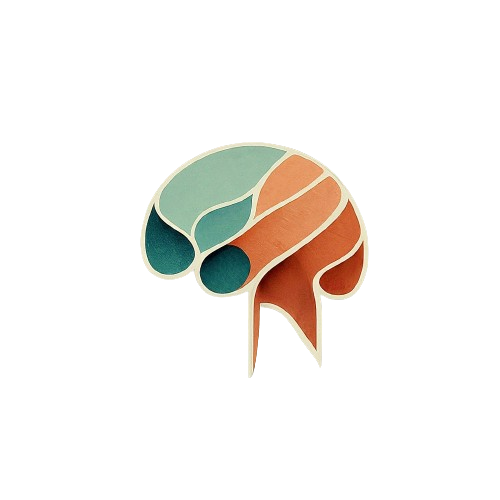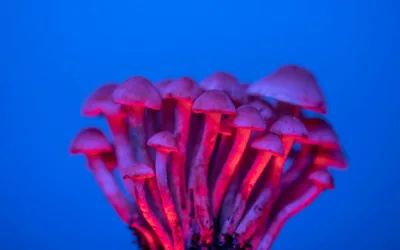Have you ever woken up after a night of drinking, feeling not just physically unwell, but also overwhelmed with anxiety? If so, you’re not alone. This phenomenon, known as “hangxiety,” is a common experience for many people who consume alcohol. In this comprehensive guide, we’ll explore what hangxiety is, why it happens, and most importantly, how to manage and prevent it.
What is Hangxiety?
Hangxiety, a portmanteau of “hangover” and “anxiety,” refers to the feelings of anxiousness that often accompany a hangover. While the physical symptoms of a hangover—such as headache, nausea, and fatigue—are well-known, the psychological impact can be equally challenging.
Hangxiety typically involves:
- Excessive worry or unease
- Feelings of guilt or shame about behaviors while intoxicated
- Increased heart rate
- Restlessness
- Difficulty concentrating
- A sense of impending doom
Research suggests that approximately 12% of people experience hangxiety after drinking. Interestingly, shy individuals may be more prone to these anxious feelings during a hangover, according to a British study on the subject.
The Science Behind Hangovers
To understand hangxiety, it’s essential to first grasp what causes a hangover. A hangover occurs when you consume more alcohol than your body can efficiently metabolize. This excess leads to a series of physiological changes, including:
- Dehydration
- Electrolyte imbalance
- Inflammation
- Disrupted sleep patterns
- Alterations in brain chemistry
These changes contribute to the familiar hangover symptoms like headache, nausea, and fatigue. However, they also set the stage for the psychological symptoms associated with hangxiety.
Why Hangxiety Occurs
Several factors contribute to the development of hangxiety:
1. Neurotransmitter Imbalance
Alcohol affects the balance of neurotransmitters in your brain. It initially increases the production of GABA (gamma-aminobutyric acid), which has a calming effect. However, as alcohol leaves your system, GABA levels drop, potentially leading to increased anxiety.
2. Dopamine Depletion
Drinking alcohol causes a surge in dopamine, the “feel-good” neurotransmitter. The next day, dopamine levels plummet, which can result in low mood and increased anxiety.
3. Glutamate Rebound
Alcohol suppresses glutamate, an excitatory neurotransmitter. When you stop drinking, glutamate levels can rebound, leading to hyperactivity in the brain and contributing to anxiety symptoms.
4. Dehydration and Physical Stress
The physical stress of dehydration and other hangover symptoms can trigger the release of stress hormones like cortisol, exacerbating feelings of anxiety.
5. Alcohol-Induced Memory Gaps
Alcohol can cause memory blackouts, leading to uncertainty about one’s actions while intoxicated. This uncertainty can fuel anxiety and worry the next day.
Who is Most Susceptible to Hangxiety?
While anyone can experience hangxiety, certain factors may increase your risk:
- Pre-existing anxiety disorders: If you already struggle with anxiety, you may be more prone to hangxiety.
- Shy or introverted personality: Research suggests that shy individuals may be more likely to experience hangxiety.
- Heavy or binge drinkers: The more alcohol consumed, the higher the likelihood of experiencing hangxiety.
- Those with alcohol use disorder: Regular, heavy drinking can lead to more severe hangxiety symptoms.
- Individuals with social anxiety: The combination of social situations and alcohol can sometimes lead to increased anxiety the next day.
Strategies to Prevent Hangxiety
The most effective way to avoid hangxiety is to drink responsibly or abstain from alcohol altogether. However, if you choose to drink, here are some strategies to minimize the risk of hangxiety:
- Stay hydrated: Drink water between alcoholic beverages to combat dehydration.
- Eat before drinking: A nutritious meal can slow alcohol absorption and provide essential nutrients.
- Pace yourself: Limit yourself to one standard drink per hour.
- Choose lower-alcohol options: Opt for drinks with lower alcohol content.
- Set a drink limit: Decide on a maximum number of drinks before you start and stick to it.
- Avoid mixing different types of alcohol: Stick to one type of alcohol throughout the night.
- Get enough sleep: Aim for a full night’s rest after drinking.
- Practice relaxation techniques: Learn and use stress-reduction methods like deep breathing or meditation.
Managing Hangxiety When It Strikes
If you find yourself dealing with hangxiety, try these coping strategies:
- Rehydrate: Drink plenty of water and consider electrolyte-rich beverages.
- Eat nutritious foods: Focus on easily digestible, nutrient-dense foods.
- Rest and recover: Allow your body time to heal and process the alcohol.
- Practice self-compassion: Be kind to yourself and avoid harsh self-judgment.
- Engage in light exercise: A gentle walk or yoga can help boost mood and reduce anxiety.
- Use mindfulness techniques: Try meditation or deep breathing exercises to calm your mind.
- Connect with supportive people: Reach out to friends or family for emotional support.
- Avoid “hair of the dog”: Drinking more alcohol to relieve symptoms can lead to a cycle of addiction.
When to Seek Help
While hangxiety is often temporary, recurring or severe symptoms may indicate a more serious issue. Consider seeking professional help if:
- You experience hangxiety frequently
- Your anxiety persists long after the hangover subsides
- You feel unable to control your drinking
- Hangxiety is impacting your daily life or relationships
Remember, there’s no shame in seeking support. Many resources are available, including therapists, support groups, and addiction specialists.
The Bottom Line
Hangxiety is a common but often overlooked aspect of alcohol consumption. By understanding its causes and implementing preventive strategies, you can reduce your risk of experiencing this uncomfortable phenomenon. If you choose to drink, do so responsibly and be mindful of both the physical and psychological effects alcohol can have on your well-being.
Remember, your mental health is just as important as your physical health. If you’re struggling with hangxiety or concerns about your alcohol use, don’t hesitate to reach out for professional support. With the right strategies and help, you can navigate the challenges of hangxiety and maintain a healthier relationship with alcohol.



